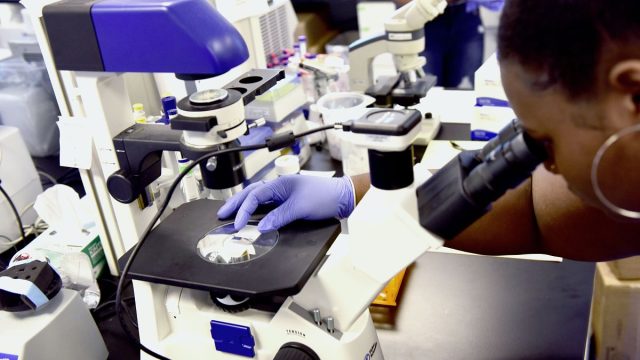Researchers say a new artificial intelligence model may be more accurate in diagnosing and evaluating cancer.
Scientists have designed a new artificial intelligence model (AI) that might be able to diagnose and evaluate multiple types of cancer.
According to the researchers, the new model, called Clinical Histopathology Imaging Evaluation Foundation (CHIEF), is up to 36% more effective than other deep learning models at detecting cancer, determining tumor origin, and predicting patient outcomes.
The team led by researchers from the Harvard Medical School I wanted the model to be widely applicable across different diagnostic tasks, as many current AI learning models for cancer are trained to perform specific functions.
An accurate second opinion in real time
“Unlike existing methods, our AI tool provides doctors an accurate second opinion in real time about cancer diagnoses by considering a broad spectrum of cancer types and variations,” said Kun-Hsing Yu, assistant professor of Biomedical Informatics at the Harvard Medical School and lead author of the study, to ‘Euronews Health’
How does it work?
The model was trained with more than 15 million different pathological images“which increases its reliability in the diagnosis of cancers with different characteristics“Yu added.
They then used more than 60,000 high resolution images of tissue slides “to further develop our AI model and refine it for specific genetic and clinical prediction tasks.”
The researchers tested their model with more than 19,400 images from 24 hospitals and numerous patients from around the world, and published the results in the journal ‘Nature’ last Wednesday.
According to the team, the model works reading digital slides of tumor tissues and can predict your molecular profile based on image features. It can also identify characteristics of a tumor related to the patient’s response to treatment.
An accuracy of almost 94%
According to a model performance metric, it reached an accuracy of almost 94% in the detection of cancer cells in 11 types of cancer. “In certain applications, such as the identification of colon cancer cells or the genetic mutation predictionthe performance of our model reached 99.43%,” says Yu.
Researchers hope the AI model will help doctors evaluate more accurately a patient’s tumor. The new model “represents a promising advance” in the application of AI to oncologyaccording to Ajit Goenka, a professor of radiology at the Mayo Clinic in the US, who was not involved in the study.
Expedite preliminary diagnostic evaluations
As he explained to ‘Euronews Health’ in an email, it could “speed up preliminary diagnostic evaluations” and provide pathologists with a tool that analyzes slides to “highlight critical areas for closer examination.”
“Despite these capabilities, the accuracy of CHIEF in various clinical settings has not yet been rigorously tested, and the potential for bias arising from its use cannot be ignored. training on large data setspossibly not representative,” said Goenka, who is researching the use of AI to improve the diagnosis of pancreatic cancer.
What awaits the AI model?
The remaining step before CHIEF is used in medical consultations is to receive the regulatory approval. “To achieve this, we are launching a prospective clinical study to validate the CHIEF model in real clinical settings,” explained Yu, who added that he also They are working to expand their capacity detection rare cancers.
Goenka added that for clinical use, the model will need “extensive validation in real-world settings, encompassing diverse patient demographics and variable clinical conditions. “This validation is crucial to ensure that the performance of the model is not only theoretically superior, but also practically reliable in daily clinical practice.”







